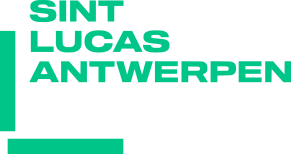
Wesley Meuris
Supervisor, Staff
wesley.meuris@kdg.be
As a visual artist, I primarily work with installations, sculptures, and drawings. Over the past decade, my research has focused on various forms of cultural classification systems and their linguistic, social, political, and architectural translations. Since 2009, I have been a researcher at Sint Lucas Antwerpen (KdG), where I completed my PhD, The Foundation for Exhibiting Art & Knowledge, in 2017. Since then, I have conducted several postdoctoral research projects, most recently completing the two-year project In the Zone of the Science-Fictional (2022–2024). I supervise PhD researchers in the arts and teach in both the Master’s and Advanced Master’s programmes.
My practice is grounded in developing insights that emerge from within artistic processes. At the heart of my approach is the articulation of critical research questions, explored through experimental, artistic, and self-initiated trajectories. My research is shaped by an ongoing curiosity about the act of exhibiting—how architecture, scenography, graphic design, and systematic formats contribute to making questions and forms of knowledge visible, tangible, and shareable. By carefully unpacking these mechanisms, space is created for reflection, critical inquiry, and at times, playful or humorous engagements with discursive frameworks.
I am particularly committed to working with doctoral researchers whose inquiry is deeply rooted in their own artistic practice—where materials, techniques, and situated concerns are already central to how the work takes shape. Together, we look how the PhD trajectory can not only generate new insights but also deepen, challenge, and nurture the artistic practice itself. I hold great care for the process in its entirety: how different phases, gestures, and questions gradually crystallize into an artistically and intellectually resonant project. With a combination of curiosity and critical attentiveness, I aim to support researchers in shaping their inquiry in ways that are rigorous, clear, and meaningful—both for the research itself and for the communities it speaks with.
